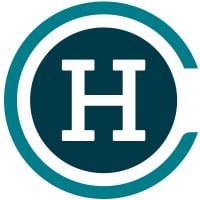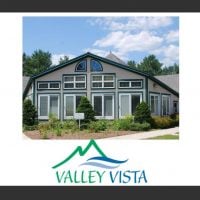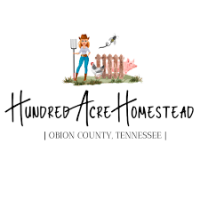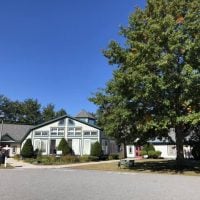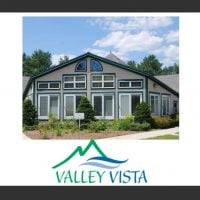Howard Center - ACT I/BRIDGE
Drug Rehab Center in Burlington, Vermont
Howard Center - ACT I/BRIDGE provides comprehensive substance abuse treatment plans and evidence-based therapies, including cognitive-behavioral therapy (CBT), motivational interviewing (MI), 12-step facilitation (TSF) and medication assisted treatment (MAT), to help individuals attain long-term sobriety.
About This Vermont Facility
Howard Center - ACT I/BRIDGE is an Addiction Treatment Facility located in Burlington, Vermont. Founded in 1865, this center is dedicated to helping individuals suffering from alcoholism, opioid addiction, dual diagnosis, drug addiction, and substance abuse. With its accreditation from SAMHSA and State License certification, Howard Center - ACT I/BRIDGE ensures high-quality care and treatment for those in need. They accept private health insurance and are affiliated with the esteemed Howard Center.
At Howard Center - ACT I/BRIDGE, individuals can expect a comprehensive range of services for addiction and substance abuse. They offer aftercare support, detoxification, drug rehabilitation, inpatient care, intervention services, and residential levels of care. The center provides a safe and supportive environment for individuals to recover from their addiction, addressing both physical and psychological aspects. With a focus on meeting individual needs, Howard Center - ACT I/BRIDGE offers personalized treatment plans, therapy sessions, and support groups to help individuals overcome their challenges and achieve long-term recovery.
Genders
Ages
Modality
Additional
Accreditations
State License
SAMHSA
Conditions and Issues Treated
Recovering from any type of substance abuse is a long process, but it is one of the most worthwhile and life changing events any addicted person will ever go through. This is a combination of detoxing the body, rehabilitation, and recovery. There is also therapy, aftercare, and support during the entire process.
While substance abuse can take over a person’s life, it is something that can also be overcame by professionals at Howard Center - ACT I/BRIDGE in Burlington, VT
With so many people struggling with opioid addiction, opioid addiction treatment is more critical than ever before. Patients often take opioids when they face a painful injury. When someone begins taking opioids such as Vicodin or oxycodone differently than how the medications were prescribed, this points to opioid addiction.
Stopping these types of medications abruptly is not safe. That is where opioid addiction treatment at Howard Center - ACT I/BRIDGE in Burlington, VT comes in. Most opioid addiction treatment facilities start with detox and move to rehabilitation services while providing medical support during the process.
Getting over an opioid addiction takes time and determination, but with the right support and resources, those struggling with opioid addiction can recover and move forward with their lives.
Levels of Care Offered at Howard Center - ACT I/BRIDGE
This center offers a variety of custom treatment tailored to individual recovery. Currently available are Aftercare Support, Detox, Drug Rehab, Inpatient, Intervention, Residential, with additional therapies available as listed below.
Detox is a drug rehab process that begins before the actual drug rehab treatment. It is used to remove any residual toxins left in your body (and brain) after using drugs, and it is used with the intent to help you or your loved one complete drug rehab.
If you are addicted to opiates like heroin, methadone, or prescription painkillers, you will detox with medication. This is because the withdrawal symptoms are often more intense and uncomfortable for an opiate addict than for someone who has abused or is dependent on other drugs, like cocaine.
Inpatient rehab programs like what’s offered at Howard Center - ACT I/BRIDGE in Burlington, VT are ideal for covering all the bases that surround one’s addiction. It’s considered the most comprehensive approach to care for people afflicted with addiction. Patients live in a facility where they have access to therapy and medical care 24/7.
Residential treatment programs are those that offer housing and meals in addition to substance abuse treatment. Rehab facilities that offer residential treatment allow patients to focus solely on recovery, in an environment totally separate from their lives. Some rehab centers specialize in short-term residential treatment (a few days to a week or two), while others solely provide treatment on a long-term basis (several weeks to months). Some offer both, and tailor treatment to the patient’s individual requirements.
Typically, people engaged in drug addiction are in a state of denial about the adverse consequences of their altered behavior. They feel that on their own, they can conquer the addiction. Intervention programs in Vermont manged by Howard Center - ACT I/BRIDGE allow family members to encourage the person affected to seek external assistance.
Therapies & Programs
Individual professional counseling or individual therapy refers to the one-on-one interaction between a patient and his or her counselor. Individual therapy allows for more privacy, one that group interactions can’t provide. Therefore, it becomes easier for a person to unload and become more open to his or her counselor.
Another benefit of individual therapy at Howard Center - ACT I/BRIDGE in Burlington, VT is that all sessions aim to speed up a single person’s progress. It makes it easier for the counselor and the patient to deal with the central issues, which are likely the culprits of substance addiction.
Once the roots of the problems are addressed, it becomes less challenging for a recovering patient to maintain sobriety and brush off temptations.
In group therapy, the patient undergoes sessions with other patients dealing with similar problems under the guidance of a trained counselor. The members of the group interact with each other and talk freely about their issues. The recovery of members of the group from the problems that they face gives the patients confidence that they can also overcome their addiction.
Group therapy at Howard Center - ACT I/BRIDGE reduces the feeling of loneliness and improves the coping skills of the patients. Group therapy provides patients with continuous feedback from other members. The group dynamics ensure that members start having some structure and routine in their lives.
The 12 step program is the treatment method used by Alcoholics Anonymous, but it can apply to any type of addiction. It outlines the 12 steps addicts should take on the path to recovery. Steps include admitting you have a problem and making the decision to turn your life around. A belief in a higher power and making amends to others are also part of the program.
Payment Options Accepted
For specific insurance or payment methods please contact us.
Is your insurance accepted?
Ask an expert, call (888) 674-0062
Howard Center Associated Centers
Discover treatment facilities under the same provider.
- Howard Center - Chittenden Clinic in South Burlington, VT
- Howard Center - St. Albans Oupatient Substance Use Services in Saint Albans, VT
- Howard Center - Family Services in Burlington, VT
- UWM Medical Center - Day One Program in Burlington, VT
- UVM Medical Center - Allen Fletcher Healthcare in Burlington, VT
Learn More About Howard Center Centers
Additional Details
Specifics, location, and helpful extra information.
Burlington, Vermont 05401 Phone Number(802) 488-6425 Meta DetailsUpdated November 25, 2023
Staff Verified
What else do people call Howard Center – ACT I/BRIDGE?
People have occasionally also searched for “Howard Center - Act One And Bridge Program in Vermont”
Patient Reviews
There are no reviews yet. Be the first one to write one.
Burlington, Vermont Addiction Information
Vermont has the highest rate of illicit drug abuse in the nation. A third of all Vermonters who are addicted to drugs admit to first having abused prescription drugs. The largest drug threat in Vermont is opioids. Fentanyl, dubbed the most dangerous drug in America, is responsible for more than half of all opioid-related deaths in Vermont. A third of all residents aged 12 and older who are addicted to drugs admit to first having abused prescription drugs. In many overdose cases, cocaine is also a contributing factor.
The drug addiction situation in Burlington, Vermont, is quite serious. 17.2% of Burlington residents reported binge drinking in the past month. In Burlington, there were 462 opioid-related deaths in 2016. It is important to find a treatment center that will cater to your specific needs and provide you with the support you need to get sober and stay sober.
Treatment in Nearby Cities
- West Burke, VT (61.8 mi.)
- Saint Albans, VT (23.7 mi.)
- Johnson, VT (29.3 mi.)
- Williston, VT (6.1 mi.)
- Middlebury, VT (32.3 mi.)
Centers near Howard Center - ACT I/BRIDGE
The facility name, logo and brand are the property and registered trademarks of Howard Center - ACT I/BRIDGE, and are being used for identification and informational purposes only. Use of these names, logos and brands shall not imply endorsement. RehabNow.org is not affiliated with or sponsored by Howard Center - ACT I/BRIDGE.
